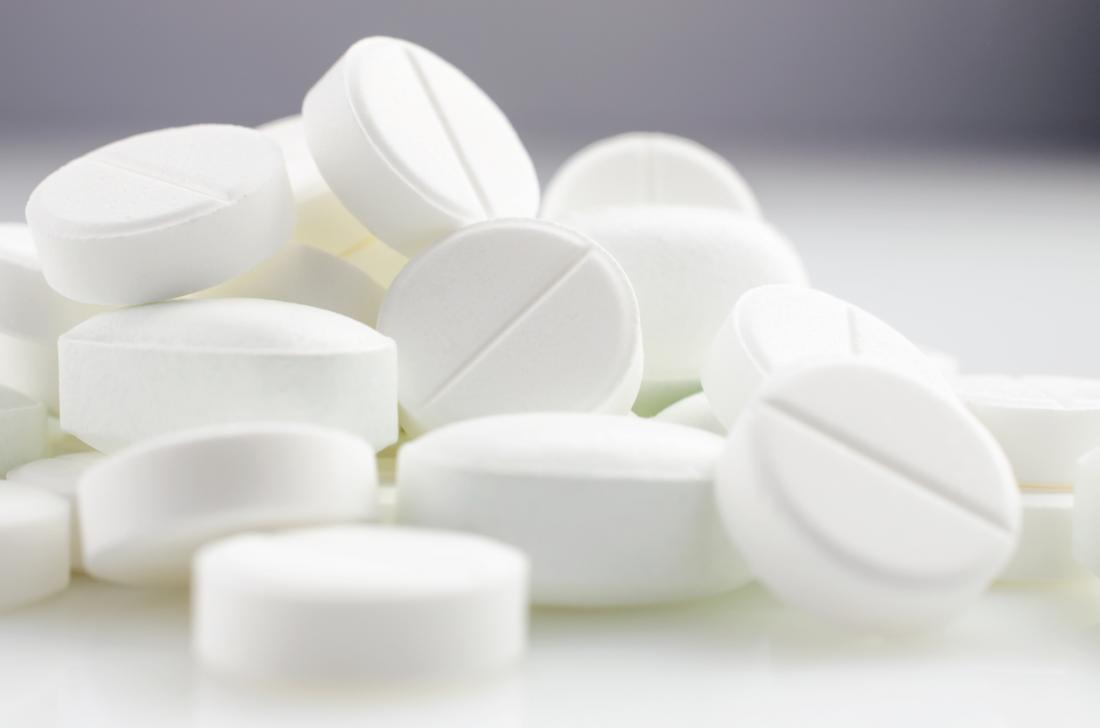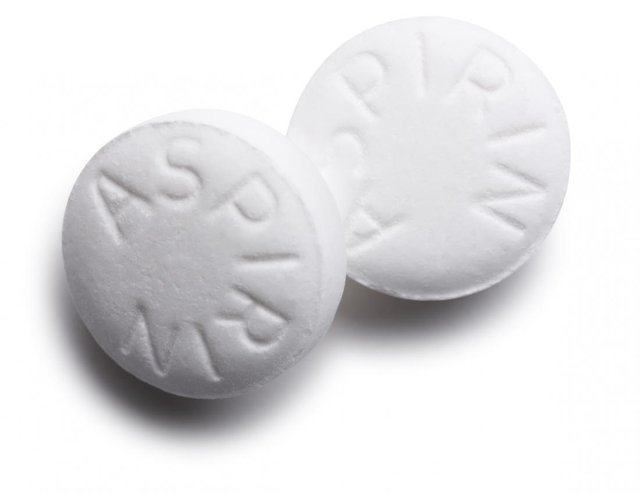Daily aspirin could ward off liver cancer
Day by day headache medicine could avert liver tumor

Specialists say that every day ibuprofen treatment could diminish liver disease hazard for hepatitis B patients.
A new study offers further evidence of the anticancer effects of aspirin, after finding that regular use of the drug could help to lower the risk of liver cancer
Researchers from Taiwan found that individuals with https://www.medicalnewstoday.com/articles/145869.php .B — a known risk factor for liver cancer — were less likely to develop https://www.medicalnewstoday.com/articles/172408.php https://www.medicalnewstoday.com/articles/172408.php daily https://www.medicalnewstoday.com/articles/161255.php therapy.Lead investigator Dr. Teng‐Yu Lee — of e Department of Gastroenterology at Taichung Veterans General Hospital in Taiwan — and colleagues recently reported their http://onlinelibrary.wiley.com/doi/10.1002/hep.29500/full at https://www.aasld.org/events-professional-development/liver-meeting , held by the American Association for the Study of Liver Diseases in Washington, D.C.
Hepatitis B is a liver infection caused by https://www.medicalnewstoday.com/articles/306288.php virus (HBV). It is estimated to affect around http://www.who.int/mediacentre/factsheets/fs204/en/ across the globe, and in 2015, the infection was responsible for around 887,000 deaths worldwide.
In the United States, it is estimated that between https://www.cdc.gov/hepatitis/hbv/bfaq.htm#overview across the globe, and in 2015, the infection was responsible for around 887,000 deaths worldwide.
In the United States, it is estimated that between https://www.cdc.gov/hepatitis/hbv/bfaq.htm#overview people have chronic hepatitis B.
According to the Centers for Disease Control and Prevention (CDC), approximately 15–25 percent of those with chronic hepatitis B go on to develop severe liver conditions, such as liver https://www.medicalnewstoday.com/articles/172295.php or liver cancer. Each year, around 1,800 people in the U.S. die from HBV-related liver diseases.
There are antiviral therapies that can help to reduce liver cancer risk in people with hepatitis B, but Dr. Lee and team note that these medications do not fully eradicate the risk.
What is more, they note that some people infected with HBV are not deemed suitable candidates for antiviral medications, so there is a need for alternative therapies that can reduce the risk of liver cancer for these patients.
Previous studies have indicated that aspirin can help to lower https://www.medicalnewstoday.com/info/cancer-oncology/ risk, but few studies have investigated the effects of this drug against liver cancer.
"Therefore," says Dr. Lee, "we conducted a large-scale cohort study to evaluate the association of aspirin therapy with HBV‐related liver cancer."Liver cancer risk reduced by over a third
To reach their findings, the researchers used the 1998–2012 https://nhird.nhri.org.tw/en/ to analyze the medical records of 204,507 patients with chronic hepatitis B.
The team identified 1,553 patients who had received daily aspirin therapy for at least 90 days and who were free of liver cancer prior to treatment initiation. These patients were matched 1:4 with 6,212 others, none of whom had ever received any form of anti-platelet therapy.
The researchers then looked at the cumulative incidence of hepatocellular https://www.medicalnewstoday.com/articles/300871.php (HCC) — the most common form of liver cancer — among participants over a period of 5 years, as well as their overall risk of developing liver cancer.
Aspirin may cut breast cancer risk for women with diabetes

Low-dose aspirin may reduce breast cancer risk for women with diabetes, researchers suggest.
Researchers have long known that diabetes can increase a woman's risk of breast cancer. A new study, however, suggests that this risk could be significantly reduced with long-term use of low-dose aspirin.
https://www.medicalnewstoday.com/info/diabetes/ is estimated to affect more than https://www.cdc.gov/diabetes/data/statistics/2014statisticsreport.html in the United States, or 9.3 percent of the population.
https://www.medicalnewstoday.com/info/diabetes/type2diabetes.php is the most common form, arising when the body can no longer use the hormone https://www.medicalnewstoday.com/info/diabetes/whatisinsulin.php effectively, which can lead to high blood sugar levels. Previous research has uncovered a link between diabetes and increased risk of https://www.medicalnewstoday.com/articles/37136.php One http://erc.endocrinology-journals.org/content/19/6/793.full published in 2012, for example, identified a 20 percent increase in breast cancer among women with diabetes.
While the precise mechanisms behind this association are unclear, researchers have http://ww5.komen.org/KomenPerspectives/Diabetes-and-Breast-Cancer.html that it may be down to changes in the body caused by diabetes, such as increased https://www.medicalnewstoday.com/articles/248423.php and high blood glucose.
Now, a research team from Taiwan - including Dr. Yi-Sun Yang of the Chung Shan Medical University in Taichung - suggests that a daily dose of https://www.medicalnewstoday.com/articles/161255.php could help to lower breast cancer risk for women with diabetes.
The researchers recently published their http://online.liebertpub.com/doi/10.1089/jwh.2016.6040 in the Journal of Women's Health.
Breast cancer risk reduced by 47 percent
To reach their findings, Dr. Yang and colleagues retrieved data from the National Health Insurance Research Database in Taiwan. They identified 148,739 women who had been diagnosed with diabetes.
Over 14 years of follow-up, the researchers assessed the incidence of breast cancer among women who were taking daily low-dose aspirin, defined as 75 to 165 milligrams per day.
Compared with women who did not take low-dose aspirin every day, those who did were found to have an 18 percent lower risk of breast cancer over 14 years.
Additionally, the researchers found that women who took a high cumulative dose of aspirin over 14 years of follow-up - defined as at least 88,900 milligrams - had a 47 percent reduced breast cancer risk.
"This indicates a reduced risk of breast cancer in patients who must continue their daily low-dose aspirin use for 2.5 years or longer," write the authors.
There was no link identified between low (under 8,600 milligrams) and medium (8,600 to 88,900 milligrams) cumulative doses of aspirin and breast cancer risk during follow-up.
The findings remained after accounting for a number of possible confounding factors, including the age of participants and the presence of other illnesses.
Dr. Yang and team say that further studies are needed to confirm the link between the use of low-dose aspirin and reduced risk of breast cancer for women with diabetes, but the findings show promise.
"Women with type 2 diabetes have an increased risk of breast cancer, and these results suggest that the same low-dose aspirin that many of these women take to prevent cardiovascular disease may also help reduce their risk of breast cancer."
@saimonuddin.

rst I took a half of 800mg last night and now at the morning I took the other half and im 14 years of age. is it fine sum or excessively? ps.it helped my headache.
wright information